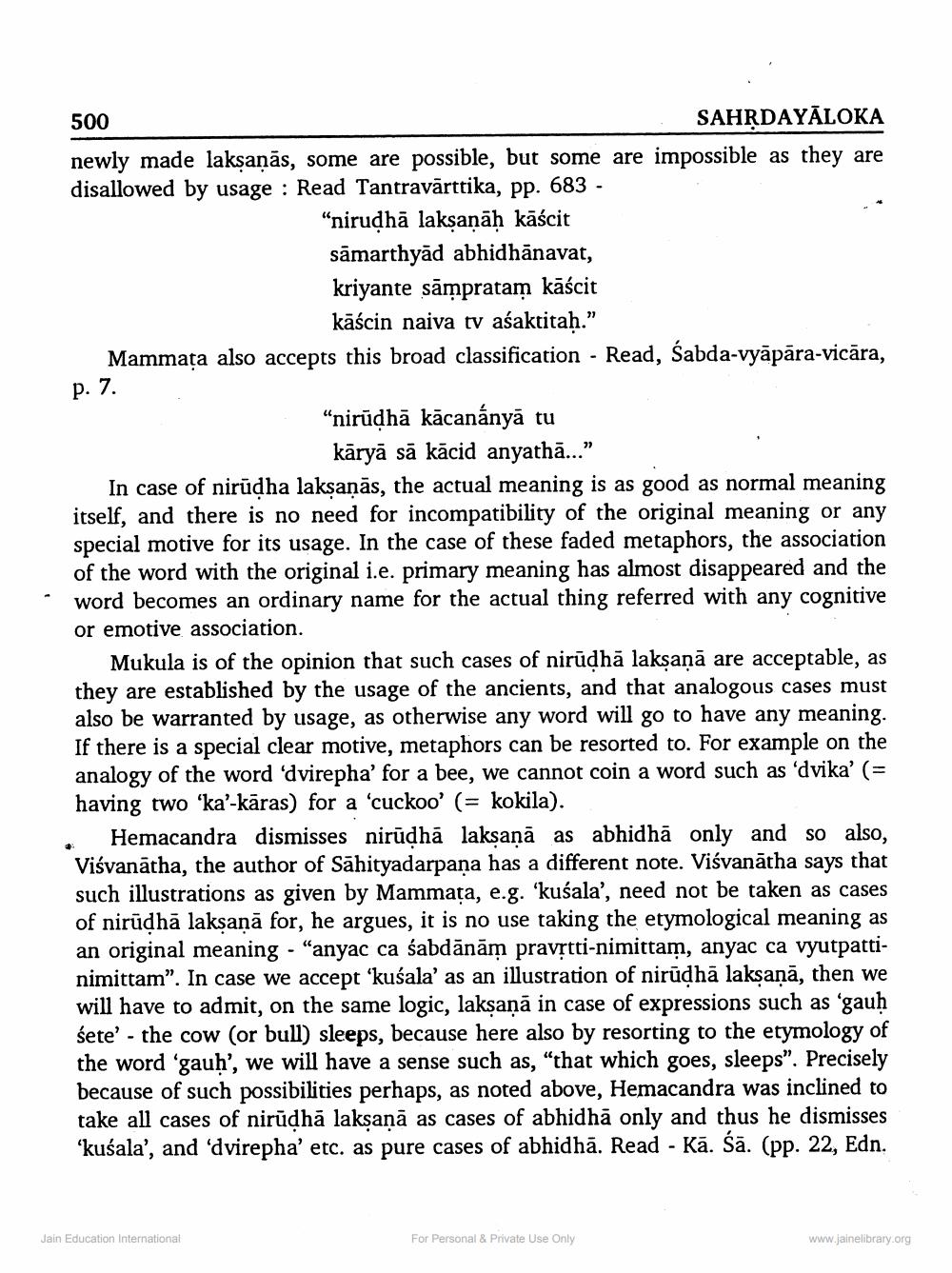________________
500
SAHRDAYĀLOKA newly made laksaņās, some are possible, but some are impossible as they are disallowed by usage : Read Tantravārtika, pp. 683 -
"nirudhā laksanāh kāścit sāmarthyad abhidhānavat, kriyante sampratam kāścit
kāścin naiva tv aśaktitah.” Mammața also accepts this broad classification - Read, Sabda-vyāpāra-vicāra,
p. 7.
“nirūdhā kācanányā tu
kāryā sā kācid anyathā...” In case of nirūąha lakṣaṇās, the actual meaning is as good as normal meaning itself, and there is no need for incompatibility of the original meaning or any special motive for its usage. In the case of these faded metaphors, the association
e word with the original i.e. primary meaning has almost disappeared and the word becomes an ordinary name for the actual thing referred with any cognitive or emotive association.
Mukula is of the opinion that such cases of nirudhā laksaņā are acceptable, as they are established by the usage of the ancients, and that analogous cases must also be warranted by usage, as otherwise any word will go to have any meaning. If there is a special clear motive, metaphors can be resorted to. For example on the analogy of the word dvirepha' for a bee, we cannot coin a word such as 'dvika' (= having two 'ka'-kāras) for a 'cuckoo' (= kokila).
Hemacandra dismisses nirudhā laksanā as abhidhā only and so also, Viśvanātha, the author of Sahityadarpana has a different note. Viśvanātha says that such illustrations as given by Mammata, e.g. 'kušala', need not be taken as cases of nirudhā laksaņā for, he argues, it is no use taking the etymological meaning as an original meaning - "anyac ca śabdānām pravstti-nimittam, anyac ca vyutpattinimittam”. In case we accept ‘kusala' as an illustration of nirudhā laksanā, then we will have to admit, on the same logic, laksaņā in case of expressions such as 'gauh sete' - the cow (or bull) sleeps, because here also by resorting to the etymology of the word 'gauh', we will have a sense such as, “that which goes, sleeps". Precisely because of such possibilities perhaps, as noted above, Hemacandra was inclined to take all cases of nirūdha laksanā as cases of abhidh, only and thus he dismisses ‘kušala', and 'dvirepha' etc. as pure cases of abhidhā. Read - Kā. Šā. (pp. 22, Edn.
Jain Education International
For Personal & Private Use Only
www.jainelibrary.org




